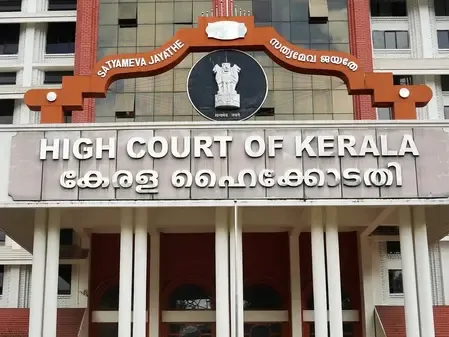Does the Broken Promise of Marriage Constitute Rape? Kerala HC Weighs In

Synopsis
Key Takeaways
- The Kerala High Court clarified legal definitions regarding consent and rape.
- Ending a relationship does not equate to rape if the relationship was consensual.
- Proving deception from the outset is crucial for rape allegations based on false promises of marriage.
- Formal complaints are necessary for charges under certain IPC sections.
- The ruling reinforces the importance of intention in relationships.
Kochi, Nov 18 (NationPress) The Kerala High Court stated on Tuesday that the conclusion of a relationship or the decision to marry another individual does not inherently transform a previous consensual sexual engagement into a case of rape.
Justice G. Girish emphasized that if a man chooses to marry someone else in pursuit of "greener pastures," it does not imply that his earlier consensual relationship with another woman constitutes rape under legal definitions.
This statement came during the court's review of a petition filed by a man facing accusations under Sections 376 (rape), 493 (cohabitation by deceit), and 496 (fraudulent marriage ceremony) of the Indian Penal Code (IPC).
The man was accused of maintaining a long-term relationship with a woman while promising to marry her, only to later wed someone else.
According to the prosecution, their relationship commenced in 2009, while the complainant was still married and had two children.
Following her husband's demise in 2013, the accused cohabited with her and the relationship progressed.
The complainant believed they were married after he performed a private symbolic ceremony by tying a gold chain around her neck.
However, in 2014, he entered into a legal marriage with another woman.
Upon being confronted, the accused assured the complainant that he still regarded her as his wife.
In 2017, he terminated the relationship, leading her to file a criminal case alleging rape and fraudulent marriage.
The High Court concluded that their relationship was evidently consensual and not a result of a fraudulent promise of marriage.
For a sexual encounter to be classified as rape based on a false promise of marriage, it must be demonstrated that the man had no intention of marrying the woman from the outset and only made false promises to exploit her sexually.
The court also noted that their relationship began while the woman was legally married, which weakened her claim of being misled into believing she would have a lawful marriage with the accused.
Referring to several Supreme Court rulings, the court asserted that consensual intimacy based on emotional attachment or future aspirations does not equate to rape unless deception is proven from the beginning.
Regarding the charges under Sections 493 and 496 of the IPC, the court clarified that such offenses can only proceed if an aggrieved party files a formal complaint, which did not occur in this instance.
Consequently, the court dismissed all criminal proceedings against the man.









